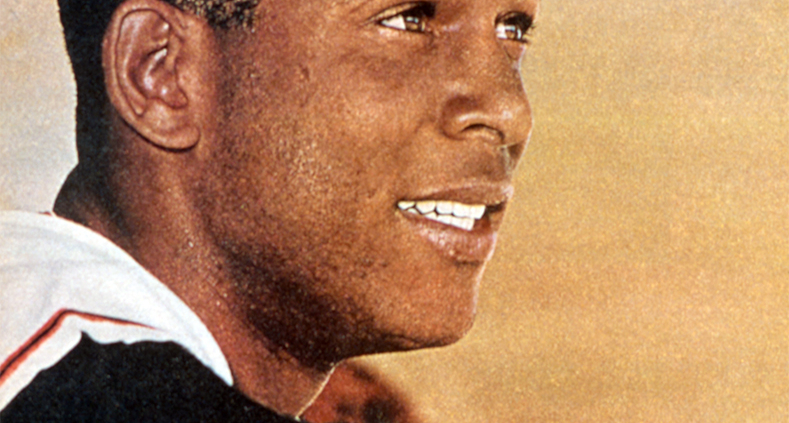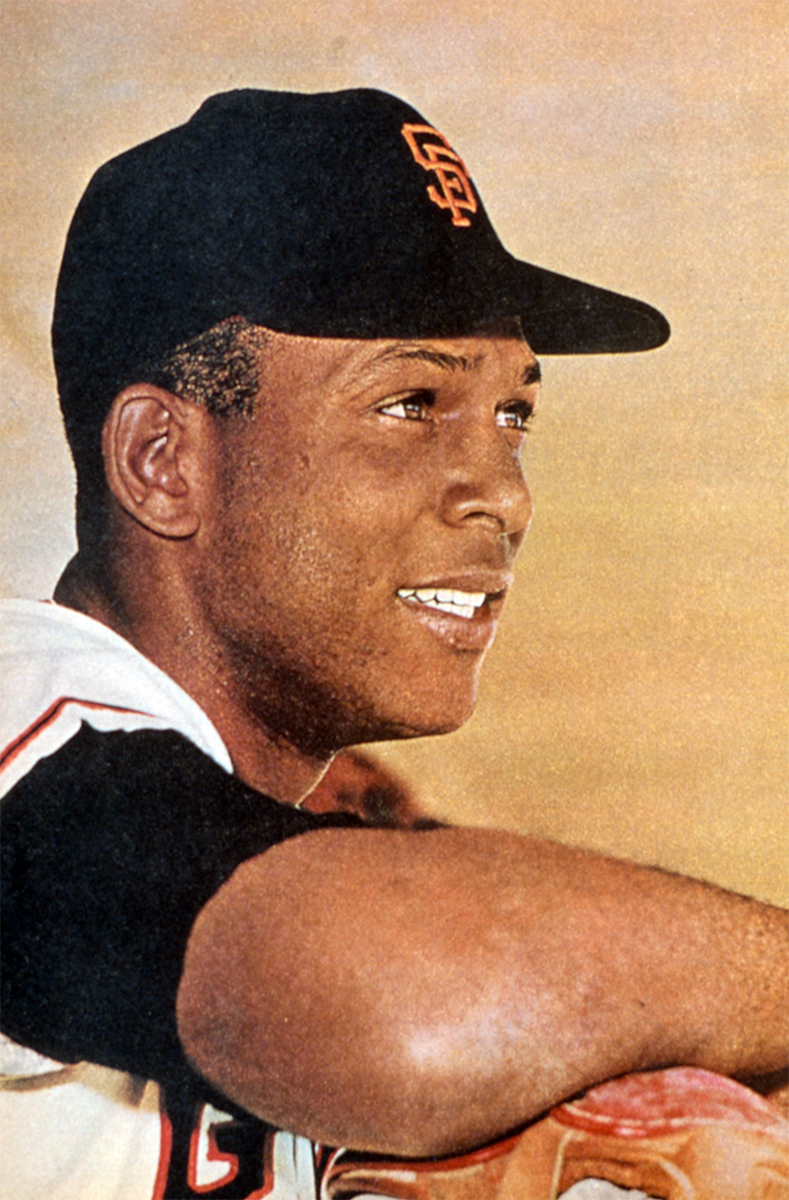In Memoriam: Orlando Cepeda
When Orlando Cepeda stood on the podium in Cooperstown, New York, for his induction into the Baseball Hall of Fame in 1999, “It is likely that no man had followed a more difficult path, or that any man was any happier to attain the honor,” as Mark Armour wrote in his SABR biography. “Cepeda escaped the slums of Puerto Rico to attain stardom at a very young age, and he overcame numerous injuries during his career, and even worse personal difficulties after leaving baseball. Although he had two remarkable comeback seasons in his baseball career, he had his biggest and most impressive comeback years later, when after a decade of humiliation he again stood on a ball field and listened to the roar of a crowd.”
Known as the “Baby Bull,” Cepeda starred for 17 seasons with the San Francisco Giants, St. Louis Cardinals, and four other teams, winning National League Rookie of the Year honors in 1958 and a unanimous Most Valuable Player Award and World Series championship in 1967. He died at the age of 86 on June 28, 2024.
Orlando Manuel Cepeda Pennes was born in Ponce, Puerto Rico, on September 17, 1937, to Carmen Pennes and Pedro “Perucho” Cepeda. His father was one of the greatest ballplayers the island ever produced, starring in leagues in the Dominican Republic and Puerto Rico from the mid-1920s until 1950. Perucho died at the age of 49 just before Orlando appeared in his first professional game.
In his second minor-league season, as an 18-year-old in St. Cloud, Minnesota, Cepeda won the Triple Crown in the Northern League with a .355 average, 26 home runs, and 112 RBIs. The San Francisco Giants called him up to make his major-league debut to open the 1958 season. In the Giants’ first game played on the West Coast, Cepeda hit a home run as the Giants beat the rival Los Angeles Dodgers at Seals Stadium. Cepeda went on to lead the National League with 38 doubles and he was named Rookie of the Year.
“Right from the beginning, I fell in love with the city,” Cepeda said. “There was everything that I liked.”
For the next five seasons, the Giants had a problem: too many future Hall of Famers at first base. Willie McCovey came up in 1959 and also won Rookie of the Year honors as the right-handed Cepeda moved to third base, then to left field. McCovey was plagued by inconsistency and struggles against left-handed pitchers for a few years. Cepeda, regardless of his position, kept playing and kept hitting, leading the NL in home runs (46) and RBIs (142) in 1961.
The Giants broke through in 1962 to win their first pennant in San Francisco as Cepeda had another great year with 35 home runs and 114 RBIs. They prevailed over the Dodgers in a three-game playoff, but fell to the New York Yankees in a dramatic seven-game World Series.
Cepeda’s final years in San Francisco were clouded by his terrible relationship with manager Alvin Dark. Cepeda believed that Dark did not like Black players or, especially, Latinos. Dark did not approve of the Giants’ many Latino players speaking Spanish, and he believed their loud music and laughter to be indicative of not taking the game seriously.
“He treated me like a child,” Cepeda told Sports Illustrated in 1967. “I am a human being, whether I am blue or black or white or green. We Latins are different, but we are still human beings. Dark did not respect our differences.”
Cepeda was traded to the Cardinals in mid-1966 and he thrived in St. Louis, where he was given the nickname “Cha Cha” for his love of jazz and salsa music and boisterous personality in the clubhouse. Cepeda rebounded from knee surgery to hit 25 home runs in 1967 and earn the league’s MVP award. The Cardinals won the pennant and the World Series in seven games over the Boston Red Sox. Cepeda hit two home runs in the 1968 World Series, but the Cardinals fell in seven games to the Detroit Tigers.
In 1969, he was traded to the Atlanta Braves, where he was reunited with lifelong friend Felipe Alou. The Braves finished first in the NL West in the first year of divisional play. Cepeda hit .455 in the playoff series against the Mets, with a home run off Nolan Ryan in Game Three, but the Mets swept the three-game series.
Following two painful seasons with the Braves and Oakland A’s, plus another knee surgery, Cepeda became the first designated hitter in Boston Red Sox history in 1973, hitting a walk-off home run to beat the hated Yankees in the opening series. Cepeda played 142 games, never once playing in the field, and hit 20 home runs to win the first Designated Hitter of the Year award.
Cepeda was released by the Red Sox just before the 1974 season and he struggled to find a job. He played briefly in Mexico before he was signed by the Kansas City Royals in August. His major-league career ended after 17 seasons and 379 home runs.
In December 1975, he was arrested for taking delivery of 170 pounds of marijuana. Puerto Rico had made Cepeda a hero after the tragic death of Roberto Clemente, but his arrest made him a pariah on the island. He and his family received death threats and he lost all of his money on his legal case. He eventually served a 10-month prison sentence.
Cepeda credited his embrace of Buddhism in the 1980s for turning his life around. It allowed him to take responsibility for the mess he had made of his life, to get control of his shame and his anger, and to help him find a path forward. He and his third wife, Mirian, moved to the Bay Area and he participated in a Giants’ fantasy camp that paved the way for him to work in baseball again. For the next 25 years, he served as a humanitarian ambassador for the Giants.
In 1999 Cepeda was inducted into the Baseball Hall of Fame, 25 years after his last at-bat. “I wasn’t ready to get in before,” he said. “I still had work to do in healing myself.” That same year the Giants retired his number 30. In September 2008 the Giants unveiled a statue of Cepeda outside the 2nd Street entrance of AT&T Park.
“When things like this happen to you, that’s when I say to myself, ‘Orlando, you’re a very lucky person,’ ” Cepeda said.
(Photos: SABR-Rucker Archive)
Related links:
- Read Orlando Cepeda’s SABR biography, by Mark Armour
- View Orlando Cepeda photos from the SABR-Rucker Archive
Originally published: July 1, 2024. Last Updated: July 1, 2024.





